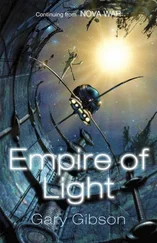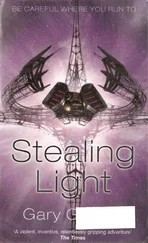It was in the restrooms of cosmetology colleges, restaurants with communal tables, underemployment agencies, off-price stores, that her fingers offered herself and others a fugitive and unimproving satisfaction of a kind, though she otherwise lacked the reach that life was said to require.
She did not like to drive, she suffered motion sickness on trains, planes were much too aerial for her taste, and on buses she would get stuck next to the perspirational, the heartsore.
She was uncottoned-to, but a soft touch always.
She audited an Oral Communications class at the township college. But despite all that dreamy speech-course certitude about “messages” and their “senders” and awaiting “receivers” (those textbook diagrams with the perkily curving arrows always made her sad), wasn’t most communication of any sort a one-way street anyway? Shouldn’t she have been content with the inner sentences of hers going on for miles and miles — an entire continent’s worth, for that matter — without anyone in any oncoming traffic taking any notice whatsoever?
The professor said things like “Other things being equal” and backed drably away from her after class. He looked cramped and made sport of in his own life and forums. There was a turnout of papules, ingrown hairs, whiteheads, on his face. Her final grade was a Courier-font C.
Of the flight home for the first of the funerals, she remembered little except that the couple sitting to her left kept rousing her from her narcosis (she had chewn some stupefacients) so they could use the restroom. They always left and returned as a couple.
She hoped she hadn’t been talking in her sleep. A big fear was that in her sleep she would “open up” and give untidy, exploded views of her psyche.
Later still: that dick-ridden gleam to her, the razzmatazz of her makeup, an autumn with a winterly girl (lavish of eyeliner and with that knack for the pathetical), then newer and newer dips to her sadness, and the panache of her about-faces to follow: setting foot out of herself, or making overtures to herself — she owed it to herself to see life flatten itself desirably in the very design of a day.
Then where — Kansas, Arkansas? The paychecks were direct-deposited, so you tended to forget.
She felt cozy in the time zone, but her days out there were as livelong as all get-out.
In those parts, the supermarket bakeries baked bagels without even a hole.
There was a diary for a while. She dressed page after page in a sneaky, tossing backhand:
Rubbing: I came to it late and didn’t get a whole lot out of it.
My life, so help me, has been little more than an ongoing demonstration of the fiasco of the bodily.
Other pages, I later saw, concerned the ruck and malarkey of monthly life, the unwondersome ways in which people finished with each other.
I like to think she might have said something quieteningly final and fair enough.
I bought a car, a black one, and drove it. I let the thing fill up with more and more trash.
In next to no time, the driver’s side had been keyed intricately, all-overishly, though perhaps keyed is not quite the word. There must have been ice picks and chisels involved as well.
Partial List of People to Bleach
She was either next to me on a plane and turning a page of her magazine every time I turned one of mine, or else she had come forward from way back to be a handful anew, because people repeat on you or otherwise go unplundered. I will think of her as Aisler for any priggish intentions I might still manage here.
Aisler had spousy eyes, and arms exemplary in their plunges, and she brought her bare knees together until they were buttocky and practical. I hemmed and hawed inside of her for some weeks after but never got the hang of her requirements. A woman that swaggering of heart will not bask in deferred venereal folderol.
Anyway, she had a kid, and the kid’s questions kept tripping me up — e.g., if you let people walk all over you, do you become a place?
Seven, seven and a half, and there were tiny whelms of hair already all over the guy.
I was flushy, heavy-faced, bluntly forty.
The morning they moved out (this was winter; flurries quibbled at the window), I made a sinking study of the lease. I had never given much thought to its terms before, the deductional verve of “lessor,” “lessee.” I was worded into the thing just once as an accountable, but the woman’s name was right and left, gothicked in fountain-pen flaunts.
In short, I left the apartment the way I had found it — evacuated, fakedly intact, incapacitated for any glorying course of residential circumstance.
This was the demising district’s lone block of limestone heights.
I had lived there wreckingly in pairs, and in notional associations of greater than two. I had painted many a rosy picture. My eyes, it had usually been claimed, were bigger than my asshole.
So I stored some things, some becalming ensembles, in my car of the decade, a four-door sobriety. Set out for a pay phone, called some people to ask after people even sparser. But after a while it was just their biles vying with mine.
Night was a portal to the morning, maybe, but morning was no gateway.
At the office campus: a couple of new hires on my level, a woman and a man. The man was in his meridian twenties, not a quick one to color. It was all I could do to show him the quickest way to disable a paper clip so it could no longer get a purchase on the pages; how to refuse food from people who came in one day with new teeth shingled over the old.
There were spatter-dash cookies all week the week he started.
We had, this new one and I, some jaunty pleasance in the john. We carried on without bywords or backwash, got to the bottom of our camaraderie pronto. He was inconclusively beautiful, a crude breather through it all, and I was easy to glut, even easier to usher out.
The other new one, the woman, gleamed in her attendance. She was one of those life-leading types newly mired. Her hair looked created just for the day.
A daughter of hers came in one morning, came over to my desk, uncautioned. She was jeweled meanly and sloping well out of her twenties, and said, “I do sense a life boarded up inside you.”
She let a hand deaden decently on my knee.
I made an appointment to meet her at the close of the week outside some vocational library beyond the county.
The day came (and so soon!) with a new droop to the sky. I drove out to the place, parked, welcomed a wait. She showed, though with a readied but refraining woman of her own. Just a girl with blacked-up, secluding hair, attractively uncertain in a man’s raincoat, a fraternal-looking thing.
I went off with the second.
Her apartment, a duplex — lawn chairs everywhere inside, an unheightened futon local to the dining room, track lamps watted lowly. It was a vague body she had, the breasts just glib, simple growths. The mossy hair on her wrists — lichen, rather, it looked like — took a weak but exact tack down her back, too. I was grateful for the broadway of bone that ran the wan length of it.
The usual skewing of selves, and then a brother upstairs if I felt I needed a look.
I did later make it up the steps. Found him adrowse undrunkenly in the tub. (The water hued, perfumed, kept bubblish with pumps. Wind chimes strung from the showerhead and set chinkling by an electric fan.)
Above the waterline: the snuggery of his underarms, an unhardihood to the shoulder blades — the healing neck, the face sharp-featured and finagledly beardless.
He talked; said he hoped to be seen as a behaving presence thereafter. Said he wanted to look traveled and dressy from a distance. Saw himself as an original in strickenness, long uncopied.
Читать дальше












